Iran Claims It Welcomes Satellite Internet Service Providers
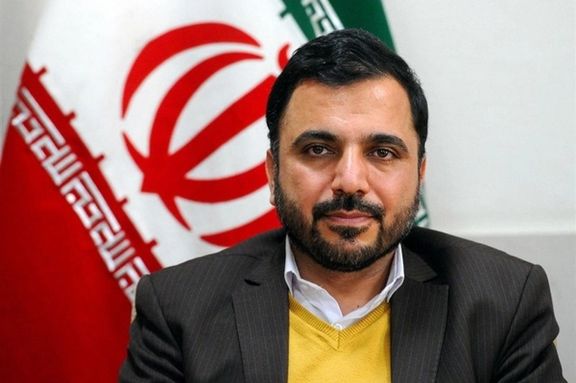
Iran’s communications minister says he welcomes the satellite internet service providers, especially Starlink, but they have to comply with the country’s territorial rules.

Iran’s communications minister says he welcomes the satellite internet service providers, especially Starlink, but they have to comply with the country’s territorial rules.
In an interview with semi-official Mehr news agency on Monday, Issa Zarepour claimed the objective is to open up connections to remote areas.
“Although over 4,000 villages have been connected to high-speed internet since the start of the Raisi administration, we still have about 3,500 villages that are not connected to high-speed internet, so satellite internet service providers can operate in these regions,” he said.
However, he admitted there will be strict compliance rules for any company the regime agrees to work with, meaning technical cooperation for censorship of Internet content.
Iran has made the same demand from Western social media platforms for not blocking their access.
Starlink, part of the US-owned SpaceX, is already providing internet to almost 60 countries, but for its connection to work everywhere in a large country, ground stations are needed.
The regime has for years been severely restricting internet access as well as access to popular social media platforms, such as Instagram, in particular that play a key role in supporting anti-regime sentiment and protester communications.
It has meant devastation for the millions who rely on social media to promote their businesses and hugely damaged e-commerce.
Recently, an Iranian official stated around 800 Starlink satellite internet receivers have been imported to Iran, but did not specify how, given the current sanctions imposed on the country.
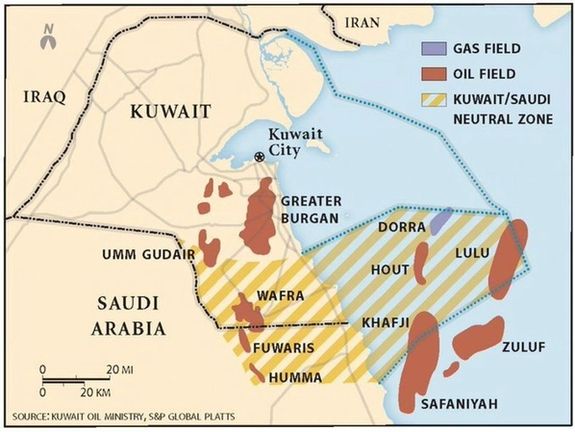
Kuwait and Saudi Arabia have "exclusive rights" in a gas field in the Persian Gulf disputed with Iran, Kuwait Oil Minister Saad Al Barrak reiterated on Sunday.
He also repeated earlier calls on Iran to validate its claim to the field by demarcating its own maritime borders first.
Iran has previously said it has a stake in the field and called a Saudi-Kuwaiti agreement signed last year to develop it "illegal".
"Until this moment, this is an exclusive right of Kuwait and Saudi Arabia in the Durra field, and whoever has a claim must start demarcating the borders. And if it has a right, it will take it according to the rules of international law," Al Barrak said in an interview with Saudi state-run Al Ekhbariya television.
"The other side has claims that are not based on a clear demarcation of the maritime borders," he added, referring to Iran.
Iran claims any development without its consent breaks international laws, and insists that 40 percent of the field is located in its territorial waters.
Al Barrak's comments echo those of Saudi Arabia, which said last week that the kingdom and Kuwait exclusively own natural wealth in the Gulf's maritime "Divided Area".
Saudi Arabia also renewed its call to Iran to start negotiations with Riyadh and Kuwait on the demarcation of the eastern border of the area, Saudi state news agency SPA said.
Called Arash in Iran and Durra or Dorra by Saudi Arabia and Kuwait -- the offshore field was discovered in 1967 and is estimated to have a total proven reserves of around 310 million barrels of oil and 20 trillion cubic feet of gas.
With reporting by Reuters
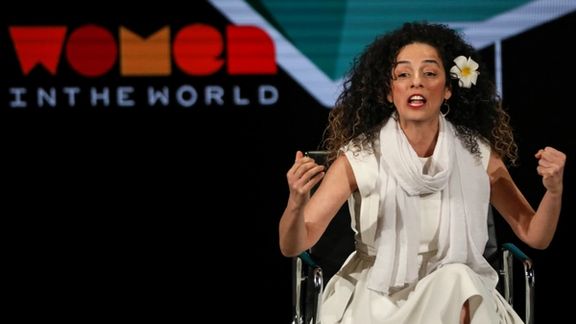
A US federal court has ruled that the Islamic Republic regime should pay over $3.3 million in damages to Iranian activist Masih Alinejad for detaining her brother.
The Iranian American journalist and women's rights campaigner released on twitter the court’s decision on Sunday. “In a major step, a US federal court has found the Islamic Republic of Iran guilty of wrongfully arresting my brother Alireza Alinejad and detaining him for two years to pressure me to stop my campaigns against compulsory hijab and gender apartheid.”
“The US District Judge G. Michael Harvey concluded Alireza was kept as a hostage for two years,” she added.
The judge awarded the plaintiff, Masih Alinejad, $1,662,500 in compensatory damages and $1,662,500 in punitive damages, after ruling in favor of her and against the defendant the Islamic Republic of Iran.
Alinejad sued the Iranian government, the Judiciary of Iran, and the Islamic Revolutionary Guard Corps (IRGC) as well as the Supreme Leader Ali Khamenei in 2019 for harassment against her and her family after the arrest of her brother.

She based her case on the Foreign Sovereign Immunities Act (FSIA), and Torture Victim Protection Act of 1991 (TVPA) for severe personal injuries and other irreparable harm suffered as a result of the regime’s “unlawful acts of terrorism, torture, hostage taking, and other torts against Alireza Alinejad-Ghomi (Plaintiff’s brother), and Ms. Zarrin Badpa, (Plaintiff’s mother).
“Alireza Alinejad-Ghomi was taken as a political hostage and continues to be tortured and imprisoned in order to discredit and intimidate Ms. Masih Alinejad and to pressure her to prevent her from speaking out against the Iranian regime,” read a part of the complaint submitted in December 2019.
Earlier in 2019, Alinejad announced that security forces had arrested her brother Alireza and were taking her family in Iran hostage to put pressure on her to cease her anti-regime activities. She also published a video clip in which her brother before his arrest said pressure on her parents had increased and they were being intimidated to condemn her and her activities on the state-run television (IRIB).
Alireza Alinejad was arrested in August 2019 and was later sentenced to eight years in prison. In 2020, his lawyer Saeid Dehghan, said Branch 36 of Tehran Province Appeals Court had confirmed an eight-year sentence for his client. Masih Alinejad announced the conditional release of his brother, writer and editor Alireza Alinejad, from Evin Prison in July 2021.
In her Sunday tweet, she urged all families, especially dual nationals held in detention, to file legal cases against the regime to prevent their loved ones from being used as bargaining chips.
She noted that this case was never about monetary compensation, but her “aim was to turn the spotlight fully on the crimes of the Islamic Republic.”
Many Iranians assuming that the court's judgement will be paid from Iran's frozen assets have raised questions about how fair it would be to pay money that belongs the Iranian nations to an individual or one family for their suffering. But the court's judgment does not specify that the money should come from any frozen assets.
Apparently, more court decisions are needed specifically to order the funds to be released from Iran's frozen assets that are mainly in Luxembourg. That would also require legal procedures in that country.
Other than that, there are no clear mechanisms to actually receive compensation from the Iranian government. It is obvious that it would deny any wrongdoing and condemn such rulings as an “interference in its internal affairs.”
Families of the victims of the 1983 Beirut barracks bombing, in which 307 people: 241 US and 58 French military personnel, six civilians, and two attackers also won court cases.
In their case filed against the Islamic Republic of Iran and the Ministry of Information and Security in 2001, the families of the 241 US peacekeepers sought a judgment that Iran was responsible for the attack and relief in the form of damages. In July 2012, federal Judge Royce Lamberth ordered Iran to pay hundreds of millions of dollars in damages and interest to the families. In April 2016, the US Supreme Court ruled that the regime’s blocked assets could be used, but there are no reports of families having received any money.
Masih Alinejad used the momentum and urged “Washington, and other governments, not to reward the Islamic Republic, which has no regards for human rights and is guilty of transnational repression,” also calling on American citizens to tell US elected officials not to engage with Islamic Republic.
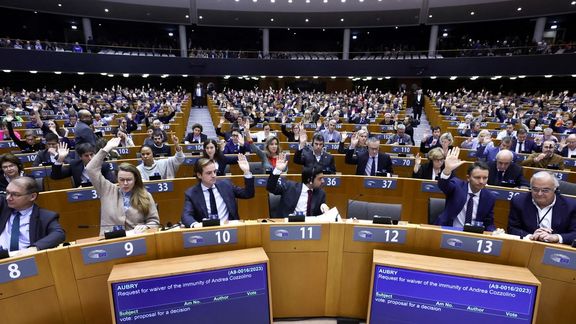
Two members of the European Parliament have again raised the issue of designating Iran’s IRGC as a terrorist group, demanding action by the EU authorities.
In a letter addressed to Spanish Foreign Minister José Manuel Albares, the new head of the EU Council, European Parliament members Evin Incir and Thijs Reuten have urged the council to initiate the procedure to add Iran’s Revolutionary Guards to the EU terrorist list.
The letter, a copy of which was also sent to Josef Borrell, High Representative of the European Union for Foreign Affairs and Security Policy, read, “In spite of the European Parliament's unequivocal demand, the Foreign Affairs Council has yet to reach agreement about adding the Islamic Revolutionary Guard Corps (IRGC) and its subsidiary forces to the EU terrorist list.”
Unlike the United States which in 2019 put the IRGC on its Foreign Terrorist Organizations (FTO) list, European countries have avoided the designation and prioritized diplomacy with the Islamic Republic in the hope of concluding a nuclear deal. The IRGC has been operating for decades across the EU. Most recently, a plot to murder Iran International journalists in London made the channel to relocate its studios to the US.
Many politicians in France, Germany, and other European countries have been keen to pursue the IRGC’s designation by the EU and say that it has been long overdue. In January, the European Parliament approved a resolution with absolute majority to designate the outfit as a terrorist organization. However, the EU executives refused to do so, with Borrell saying the move needs a ruling by a European court.
In their letter, Incir – a Swedish politician of Kurdish descent – and Reuten – a Dutch politician – responded that according to the “Common Position 2001/931/CFSP, Article 1(4) which sets out the parameters for the inclusion of persons and entities on the EU terrorist list,” the IRGC can listed without any legal barriers.
Among these parameters is “the instigation of investigations regarding, the prosecution for, or the condemnation of perpetrated, attempted, or facilitated terrorist acts,” reads the letter, adding that “The Council has further clarified that decisions by the competent authorities of third States may also serve as the basis of a listing proposal.”
They concluded that “a conviction by a Member State Court is therefore not a requirement to initiate the listing procedure of the IRGC.”
In June, a similar line of arguments was put forth by Iran’s exiled prince Reza Pahlavi, citing a group of French-Iranian lawyers who reasoned that here are no legal obstacles for the EU to blacklist the Revolutionary Guards.
“Listing this entity, which is dedicated not to protecting Iran or Iranians but instead the power of the dictatorship, would be a strong and long-awaited recognition of reality and a show of support to my compatriots who are fighting for freedom and democracy in our country,” Prince Pahlavi said in June.
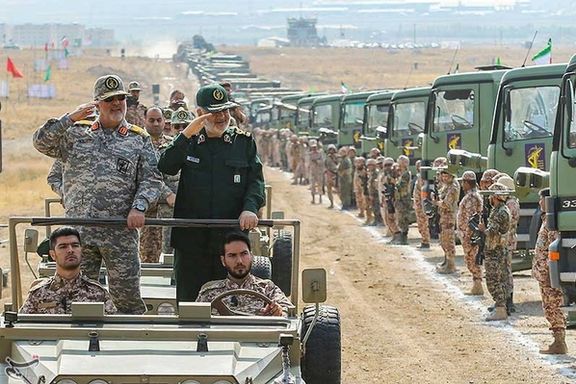
“The IRC's link with terrorism is unquestionable,” Incir and Reuten stated, noting that the IRGC and its proxies have a “well-established record of terrorist activity inside Iran, across the wider region, and within the EU.”
Calling on the Council to hold the Revolutionary Guard to account, they said, “As the IRGC doubles down on its terrorist activity with impunity and continues to wage terror on the people of Iran by way of hundreds of executions this year alone, we urge you to explore all legal avenues to initiate IRGC proscription without delay.”
“Your support for strong measures against the Islamic Republic will be indispensable for the people of Iran,” they concluded.
In April, more than 130 Democratic and Republican Congresspeople issued a letter asking the European Union to designate Iran’s IRGC as a terrorist organization. The move came after the Biden administration denied it is pressuring Britain not to list the IRGC as a terrorist organization, as reported by The Telegraph.
The UN Human Rights Council discussed a fact-finding report July 6 that said the regime continues its crackdown on dissent to stifle the nationwide protests ignited by death in custody of 22-year-old Mahsa Amini last September.
The E3 countries – France, Germany and the United Kingdom - have announced that they will keep in place sanctions imposed on the regime over its ballistic missile program beyond the October expiration date. They argue that they have ample evidence that the regime is violating its commitments under the deal both with weapons supplies to Russia and its clandestine uranium enrichment.

Israel and Saudi Arabia are a long way from a normalization agreement, US President Joe Biden said in a CNN interview broadcast on Sunday.
Biden added that an agreement would involve a defense treaty and a civilian nuclear program from the United States, confirming reports that Riyadh has demanded US nuclear technology as a pre-condition to a deal.
US officials have been negotiating in a bid to reach an elusive normalization deal between the two countries since the establishment of Israel in 1948.
"We're a long way from there. We got a lot to talk about," Biden said in an interview with "Fareed Zakaria's GPS.
Israel's energy minister expressed opposition last month to the idea of Saudi Arabia developing a civilian nuclear program as part of any US-mediated normalization deal.
Biden pointed to Saudi Arabia's decision on the eve of his visit to the kingdom last summer to open its airspace to all air carriers, paving the way for more overflights to and from Israel.
The US president also noted efforts toward a permanent ceasefire in Yemen, a conflict that has killed tens of thousands of people and has widely been seen as a proxy war between Saudi Arabia and Iran.
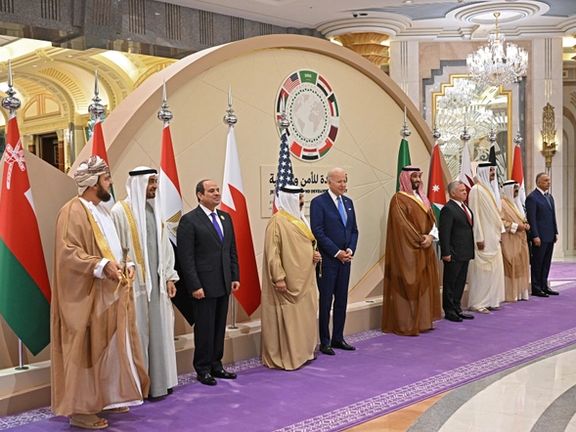
"So, we're making progress in the region. And it depends upon the conduct and what is asked of us for them to recognize Israel," Biden said in the interview.
"Quite frankly, I don't think they have much of a problem with Israel. And whether or not we would provide a means by which they could have civilian nuclear power and/or be a guarantor of their security, that's - I think that's a little way off."
Israel has said it expected to be consulted by Washington on a US-Saudi deal affecting its national security. Israel, which is outside the voluntary Non-Proliferation Treaty (NPT) and has no nuclear energy, is widely believed to have atomic weapons.
Pointing to precedents like Iraq and Libya, Israel has long worried that potentially hostile neighbors could use civilian nuclear energy and other projects developed under the 1970 NPT as cover for clandestine bombmaking.
Israel is also extremely concerned about Iran’s nuclear program that has been expanding to dangerous levels and has threatened to use military force if it feels Tehran crosses the red line of 90-percent uranium enrichment.
Public fury grew in the Arab world last week after one of Israel's biggest military operations in the occupied West Bank in years, a raid in a Jenin refugee camp, a Palestinian militant stronghold.
Saudia Arabia on Tuesday joined other Arab League nations in condemning the raid, which killed 12 Palestinians. Even before the latest violence, Riyadh said normalization is not possible until Palestinian statehood goals have been addressed.
Israel’s religious-nationalist government has acknowledged setbacks in the normalization efforts amid Saudi censure of its policies toward the Palestinians.
Israel Foreign Minister Eli Cohen sounded a hopeful note on Sunday about the rare participation of an Israeli delegation at a Riyadh-hosted soccer video-gaming tournament over the weekend.
"Ultimately we want to reach a state of full relations - meaning cooperation on economic matters, intelligence, tourism, flights, et cetera - and I reckon this will happen sooner or later," he told Israel’s Army Radio.
The Israel Football Association, which is managing the delegation at the FIFAe World Cup Riyadh 2023, said its participation was enabled by Riyadh’s agreement to admit all comers - not any arrangement between the Saudi and Israeli governments.
Reporting by Reuters
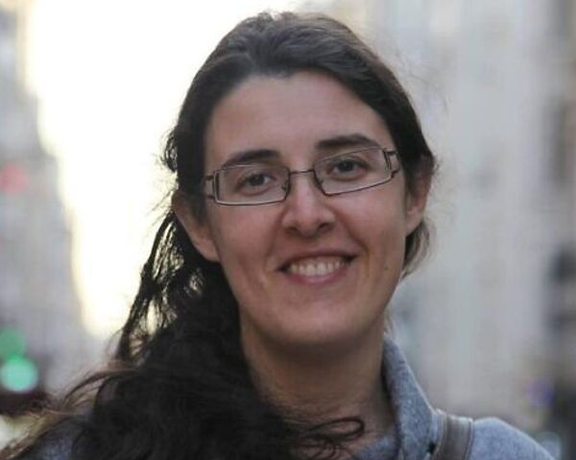
Iraqi sources claim the kidnapping of Russian-Israeli researcher Elizabeth Tsurkov was carried out to press Israel to release a detained Iranian.
It is possible that the Iranian in question is Yousef Shahbazi Abbasalilo, who was allegedly snatched from Iranian soil by Israel for planning attacks on Israeli targets in Cyprus, reported the London-based Arabic daily Asharq Al-Awsat on Sunday.
It is not clear if Israel abducted Abbasalilo before or after Tsurkov was abducted.
Sources told the outlet that Moscow is mediating talks that could result in Tsurkov's release soon.
The pro-Iranian militia Kata’ib Hezbollah is believed to be holding Tsurkov in Iraq, while other sources suggest she has been taken to Iran.
On July 3, an Iraqi official told Israeli media that the Islamic Republic has been involved in the abduction in Iraq of the academic.
While Kata'ib Hezbollah denied any involvement in Tsurkov’s kidnapping, an Iraqi official told Israel's Channel 11 that she was arrested by Iraq's intelligence service - or someone posing as such - before being handed over to Iran-backed Kata'ib Hezbollah which has been holding her for months.
An expert on regional proxies across the Middle East including Turkey's proxies in Syria, Tsurkov had traveled to several of the region's terror hotspots.
Tsurkov's mother Irena said they lost contact two months ago. "From what I had known until today, she was in Turkey, working on her research for Princeton. I didn't even know she was in Iraq," she told Israel's N12 News.